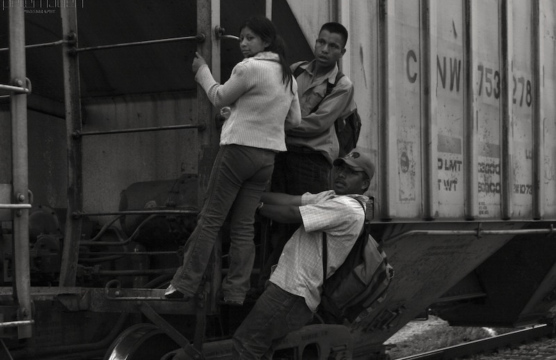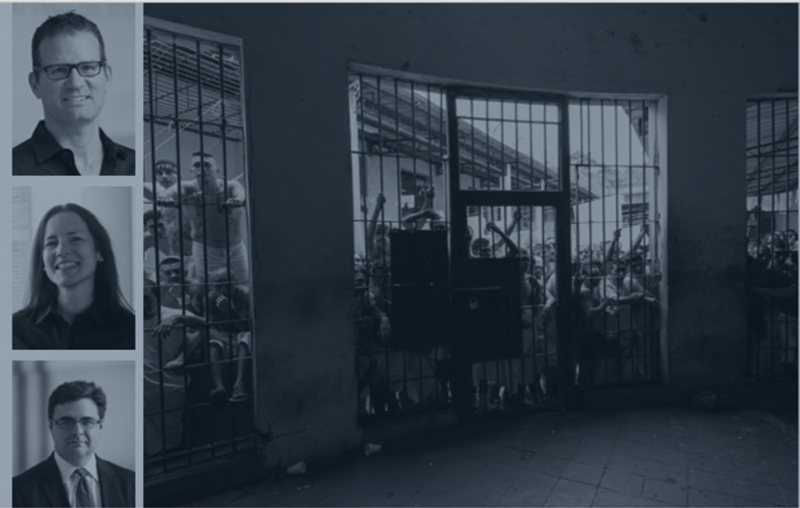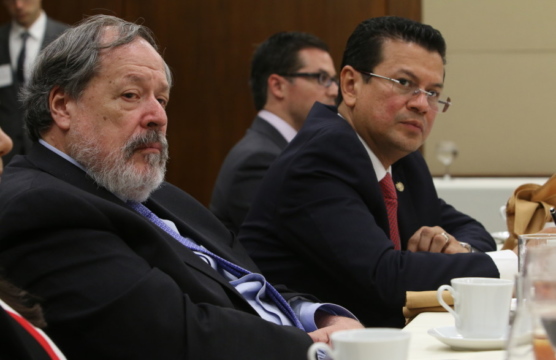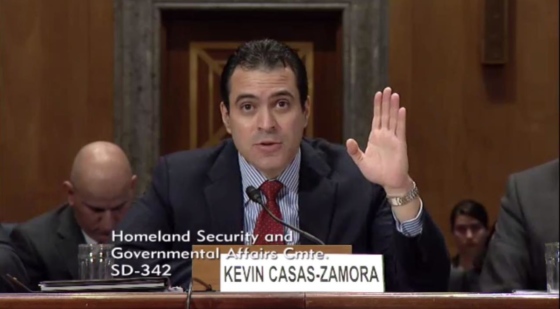
Congressional Testimony: Challenges at the Border
More than 52,000 Central American children, passing through Mexico, have sought entry into the US.
On October 27, 2020, the Inter-American Dialogue hosted “Anatomy of MS-13 – Policy Implications for El Salvador and the US” using the groundbreaking publication by Steven Dudley, MS-13: The Making of America’s Most Notorious Gang, as a basis for discussion. Dudley, a renowned investigative journalist and the co-founder of Insight Crime, served as keynote speaker. The event featured commentary by Sonja Wolf, assistant professor at the drug policy program at the Centre for Economic Research and Teaching (CIDE) in Mexico, and Ricardo Zúñiga, senior diplomatic fellow at the Woodrow Wilson Center. Michael Shifter, president of the Inter-American Dialogue moderated the conversation. The event addressed the origins of MS-13 and how its causes and impacts can be understood in the transnational context of Central America and the United States. Discourse also consisted of the policy lessons for the United States going forward as well as the imposing challenges for Northern Triangle governments in crafting a comprehensive approach towards gangs.
The event opened with remarks by Dudley who explained the three layers in which he framed his book to address the lack of understanding of the purpose and operations of MS-13. In the first layer, Dudley critiques the narrative in popular imagination of the young criminal gang member, an image often manipulated to form a euphemism for undocumented migrants. Instead, he argued, these youth are “walking paradoxes of victims and victimizers,” both responsible for violent acts and yet, also often victims of domestic abuse and chaos, causing them to search out a surrogate family in the form of MS-13. The second framing appertains to the group’s evolution which has grown into sophistication and cohesion, both through the deportation of gang members to the Northern Triangle and en masse imprisonment. Dudley remarked that though often overlooked, the final layer is the unequal relationship between the United States and El Salvador. Salvadorans are dependent on the United States economically and culturally but are criminalized by the same country, creating a situation where MS-13 arises from this complex relationship.
Wolf expounded upon these points, remarking that MS-13’s image has been turned into the epitome of notoriety, despite it often unable to live up to this representation in member numbers and expanse of illicit activities. She noted that while the gang has evolved, its essential character as a social group, rather than a criminal group, remains unchanged as “groups like MS-13 do not form in pursuit of illicit enrichment so the perpetration of violence is not their purpose.” Due to this point, she urged, the use of a solely criminal dimension in the drafting of any solution will not contain these groups. Instead, the long-standing preferences for security-oriented approaches often fail to incorporate the comprehensiveness of social prevention and reinsertion programs.
Zúñiga reiterated that taking the human approach used to analyze MS-13 in Dudley’s book is vital to making the scale of violence all that more apparent and demonstrating how ill-equipped policy is to deal with such a social issue. He asserted that “these are problems that do not lend themselves to discrete solutions, but rather, systemic solutions.” Despite the need for this, accomplishing a comprehensive long-term fix is often unfeasible in the short period demanded by governments and the public who wish to see swift results.
The event concluded with a Q&A discussion session. When asked why the political pressures to adopt “Mano Dura” anti-gang policies remain despite the measures’ ineffectiveness, Dudley explained that these are seen as politically palatable- policies based on arrest numbers are seen as yielding immediate results. Dudley pointed out that contributing to this pressure is the pervasive misunderstanding of what gangs are, often framed in a criminal manner rather than as a product of societal issues and systemic failures. In response to a question, Wolf shared her thoughts on criminalization labeling, saying these labels are often applied without giving a thought to the consequences that invite a security response. She reiterated that the focus on this criminal dimension in labeling contributes to the notion that these are criminal organizations and must be tackled as so. In response to a question on US policy, Zúñiga, in turn, emphasized the importance of allowing those in the Northern Triangle and the United States who advocate for comprehensive reform to succeed. This requires a focus on institutional reform and reentry programs. Lastly, Dudley wrapped up by explaining the centrality of the prison experience to the gang members’ stories and to MS-13’s evolution. Dudley noted that in the absence of the state, gangs are there to fill in the gaps, allowing them to build greater social capital.
More than 52,000 Central American children, passing through Mexico, have sought entry into the US.
The outlook for the Northern Triangle is one of both optimism and apprehension.
CONGRESSIONAL TESTIMONY AS SUBMITTED FOR RECORD AND DELIVERED BEFORE A FULL COMMITTEE HEARING OF THE US SENATE COMMITTEE ON HOMELAND SECURITY AND GOVERNMENT AFFAIRS. Over the past five years, slightly over 100,000 unaccompanied migrant children from Guatemala, Honduras and El Salvador have been apprehended at the US southern border. They are but…
 Main Photo: FBI / Sonsonate, El Salvador
Main Photo: FBI / Sonsonate, El Salvador

 Video
Video